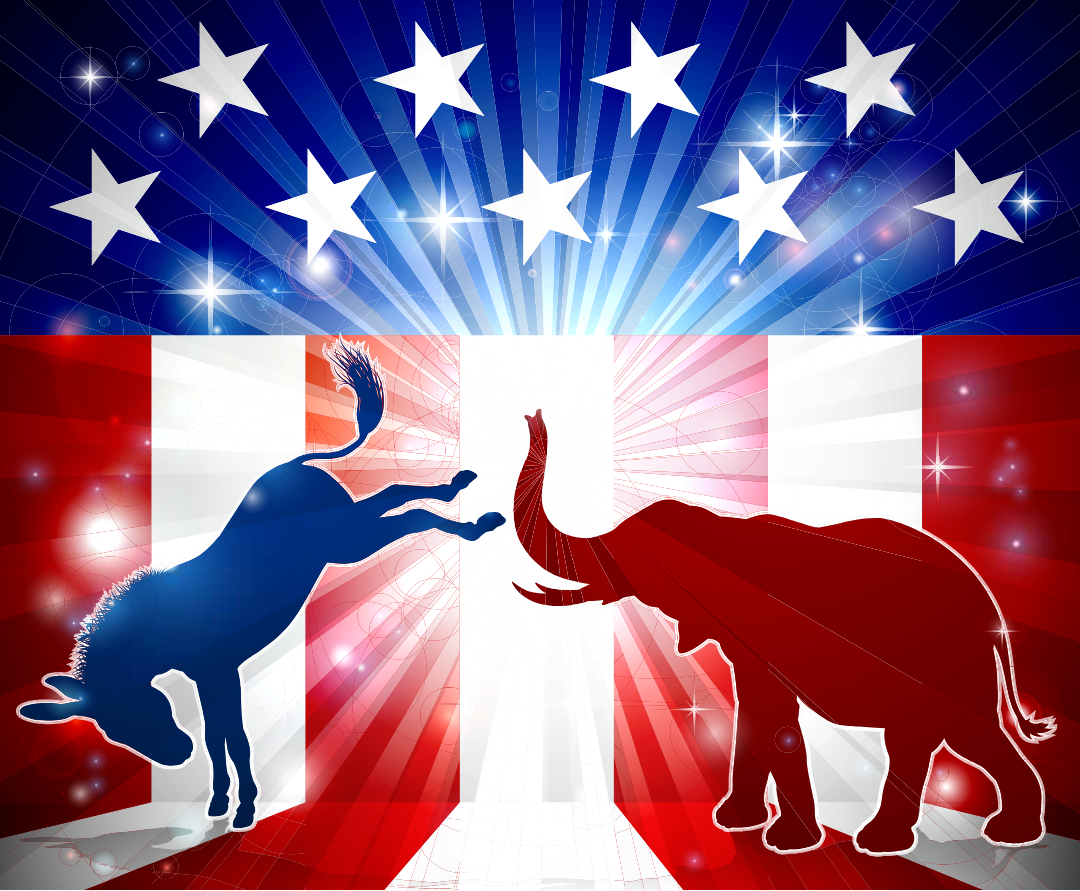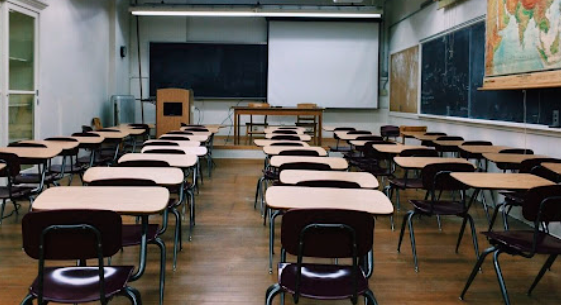Perspectives from veteran pollster provide light on the divisive 2024 election.
What To Know:
-
Ed Goeas exposes a recurring trend: major party nominees with higher unfavorable ratings.
-
72% of Americans perceive the country as veering off course, according to Goeas's insights.
-
Concerns about threats to democracy are expressed by 81% of voters, reflecting widespread apprehension.
-
Only 38% of voters are highly certain that the 2024 elections will be conducted fairly.
-
66% of the electorate favors compromise, indicating a desire for political cooperation.
-
Centrist leanings are prevalent among voters, with 68% seeking pragmatic solutions to issues.
-
Goeas speaks about the importance of compromise and practical solutions for addressing pressing issues.
Ed Goeas, a seasoned expert in the field of American politics recently shared his insights at The Ripon Society, shedding light on the current state of affairs in the nation's political landscape. From dissecting the upcoming election to unraveling the findings of the latest Georgetown University Battleground Civility Poll, Goeas offers a comprehensive analysis that navigates through the complexities of American politics. Let’s take a look at what he had to talk about.
Negative Trends in Presidential Nominees
During his recent discourse at The Ripon Society, Ed Goeas delved into a disconcerting phenomenon prevalent in contemporary American politics: the recurrent emergence of major party nominees with higher unfavorable ratings than favorable ones. This disapproval trend has persisted across three successive presidential election cycles, indicating a deepening sense of disillusionment and discontent among the electorate regarding the candidates presented by the nation's dominant political factions.
Goeas emphasized the importance of this trend and its consequences for the political environment in general as well as the electoral landscape. As he aptly noted, "This is going to be the third presidential election in a row where both nominees for the major parties have a higher unfavorable than a favorable." This declaration highlights the seriousness of the situation and the demand for a more thorough investigation of the elements causing this unsettling trend.
Perception of Country's Direction
Ed Goeas's insights shed light on the prevailing sentiment regarding the trajectory of the United States, revealing a pervasive sense of dissatisfaction among the populace. According to recent findings presented by Goeas, a staggering 72% of Americans believe that the country is veering off course.
This pervasive belief that the country is headed in the wrong direction highlights long-standing worries and annoyances about a range of issues related to leadership, the direction of policy, and the welfare of society. In order to better represent the goals and expectations of the American people, Goeas speaks on how urgent it is to address these issues and refocus national priorities.
Negative Nancy’s In AmericaWhen a country's direction is perceived as going poorly, the consequences ripple throughout society, impacting various facets of daily life and the national economy. In such scenarios, people may experience heightened levels of anxiety and uncertainty, leading to decreased consumer confidence and spending. This downturn in economic activity can exacerbate existing inequalities, as marginalized communities bear the brunt of financial instability and job losses. A lack of faith in the government's ability to address pressing issues can erode trust in democratic institutions, fueling political polarization and social unrest. On a personal level, individuals may feel disheartened by the perceived stagnation or regression of societal progress, leading to feelings of disillusionment and disenchantment with the political process. Citizens who become disillusioned may become less engaged in politics and in public discourse, which would further erode the foundation of the country's democracy. All things considered, the effects of a negative perception of a nation's direction are far-reaching and affect all facets of society, posing a threat to the durability of democratic governance. |
Concerns about Democracy
Ed Goeas expressed that there is a profound sense of unease among voters, with 81% expressing concerns about threats to democracy. This statistic, drawn from the Georgetown University Battleground Civility Poll, indicates a widespread apprehension regarding the integrity and stability of democratic processes. Such a high level of apprehension suggests a deep-seated skepticism about the functioning of democratic institutions, necessitating urgent attention to address underlying issues and restore public trust in the political system.
Goeas's analysis points out the imperative of safeguarding democratic principles. The prevailing doubts about the fairness and legitimacy of the upcoming election, as evidenced by the poll findings, signal a critical juncture in the nation's democratic journey. With widespread doubts casting a shadow over the electoral process, there is a pressing need for concerted efforts to uphold the fundamental tenets of democracy. The urgency of addressing these issues to strengthen democracy's pillars and guarantee that American democratic institutions remain resilient in the face of changing circumstances is demonstrated by Goeas's observations.
Lack of Confidence in Fair Elections
Ed Goeas has brought attention to a critical issue: the general lack of trust in the legitimacy and fairness of the impending election. According to the Georgetown University Battleground Civility Poll, just 38% of voters are highly certain that the 2024 elections will be conducted fairly. Goeas indicates a widespread apprehension among the electorate regarding the integrity of the electoral process. The data paints a stark picture of voter skepticism, raising pertinent questions about the transparency and credibility of the upcoming election.
In-depth examination of the underlying causes of this mistrust is provided by Goeas's analysis, which discusses the necessity of taking comprehensive action to address systemic issues. The findings suggest a critical need for initiatives aimed at bolstering voter trust and confidence in the electoral process. There is an urgency to restore faith in the fairness and legitimacy of elections, illustrating the significant role of transparent and accountable electoral practices in upholding the democratic principles upon which the nation was founded.
Preference for Compromise and Centrist Leanings
In discussing the prevailing sentiment for compromise and practical solutions, Ed Goeas emphasized, "66% said that they wanted compromise in terms of the problems." This statistic underlines the electorate's desire for political cooperation and consensus-building to tackle pressing issues. Goeas further brought out the importance of this majority preference, indicating its potential to foster constructive dialogue and bridge ideological divides in the political landscape.
What Would Centrist Leaning Mean For Our Country?Centrist leaning represents a pivot away from the polarized extremes of political discourse towards a more balanced and collaborative approach to governance. Consider a scenario where a centrist-minded community faces a pressing issue, such as improving public education. Rather than adhering rigidly to partisan agendas, centrist leaders and citizens prioritize finding common ground and implementing practical solutions that benefit all stakeholders. T This could involve initiatives like investing in teacher training, updating curriculum to reflect modern needs, and increasing access to educational resources for underserved populations. By adopting centrist values, communities can break through impasse, advance inclusivity, and propel constructive change that is appealing to a wide variety of viewpoints. |
Goeas also discussed the significance of voters' centrist inclinations, saying, "Most voters are genuinely centrist; 68% of the country wants solutions to our problems." This inclination towards moderation signals a departure from entrenched partisanship, as voters prioritize pragmatic approaches to governance. In determining policy agendas and promoting inclusive decision-making processes, Goeas's observations demonstrate how important it is to recognize and take into account centrist viewpoints.
Wrap Up
Ed Goeas's insights offer a sobering reflection on the state of American politics and the looming challenges facing the nation. From the negative trends in presidential nominees to widespread concerns about the direction of the country and the integrity of its democratic processes, Goeas's analysis underscores the urgent need for unity and pragmatic leadership. As the electorate expresses a clear preference for compromise and centrist solutions, there is an opportunity for politicians and policymakers to prioritize collaboration over conflict and pursue policies that address the pressing issues facing our communities.
Remembering the strength of group effort and the possibility of good change when we unite as a country should not be lost as we look to the future. In the words of Ed Goeas, "The path forward requires a commitment to compromise, a dedication to practical solutions, and an unwavering belief in the resilience of our democracy."





